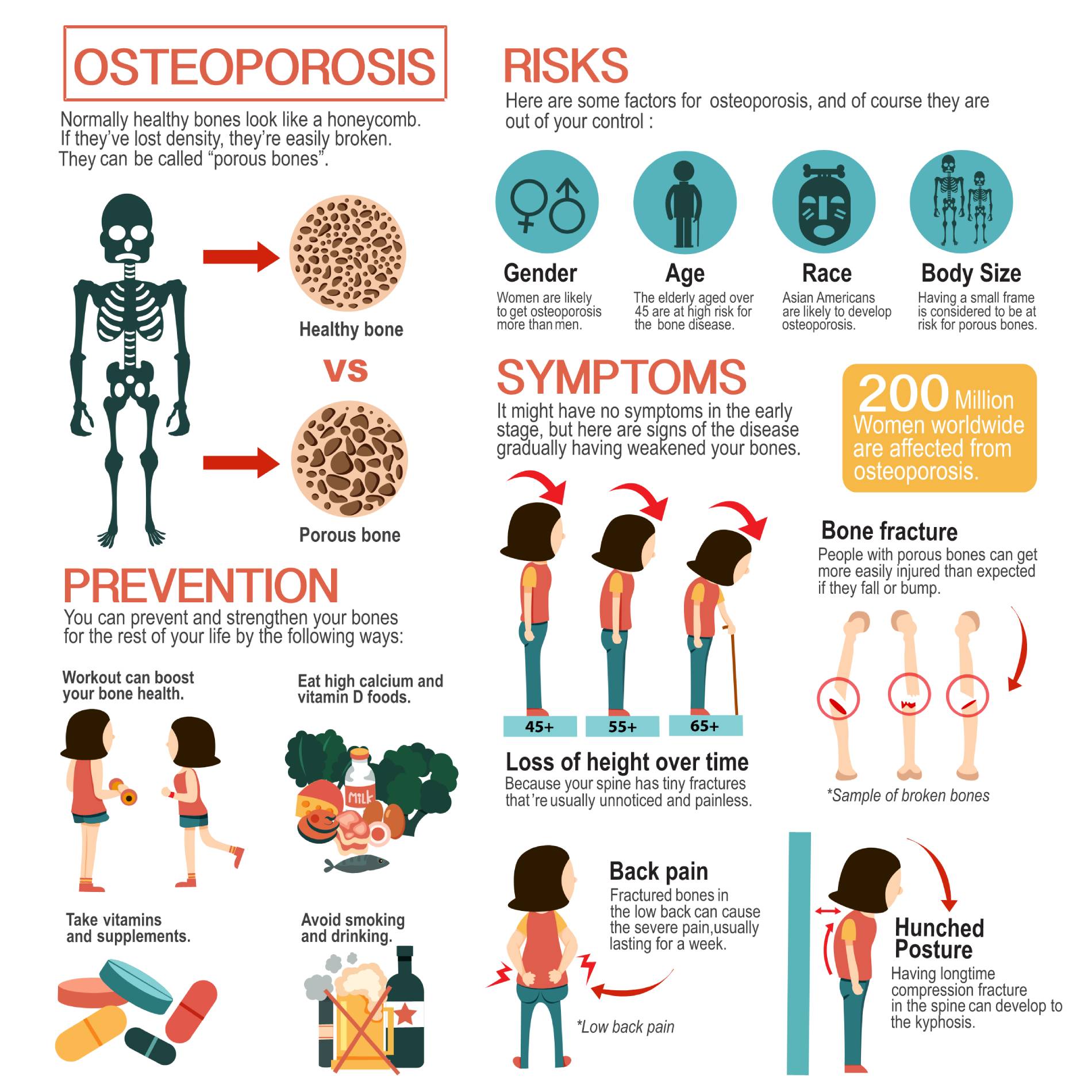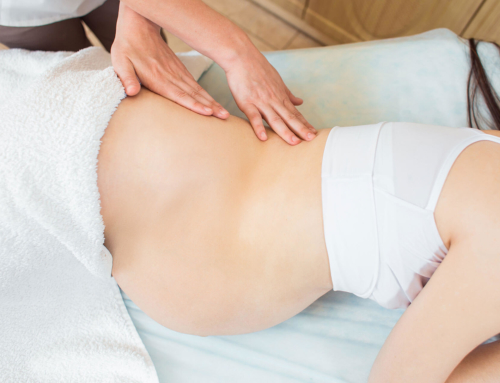Osteoporosis
Osteoporosis is a condition where our bones become less dense and therefore more likely to fracture. It’s sometimes called the ‘silent disease’ because typically you do not have any pain, when you are losing bone mass, and it’s not until you fracture that you realise there is a problem. Often some people will go on without realising that they have got osteoporosis until a small trauma or injury, like a little trip or a fall, resulting in a fracture (break of a bone).
Who gets osteoporosis?
Osteoporosis can affect anyone, but it typically effects post-menopausal women. Osteoporosis and broken bones are more common in women than men. Women are more likely to get osteoporosis then men for three main reasons:
1/ After the menopause women lose bone density faster because of a reduction in the levels of circulating oestrogen. Oestrogen is the female sex hormone that helps keep bones strong.
2/ Women tend to live longer so are more likely to have lower bone strength as they got older.
3/ Women tend to have smaller bones than men. Having bigger bones is found to reduce the risk of broken bones.
Osteoporosis can affect men too and this is often in relation to a decline in the male sex hormone; testosterone. There’s less understanding about why men have a reduction in testosterone, but we do know some factors that can influence it, and they can involve lifestyle choices such as of smoking, excessive alcohol consumption, or prolong steroid use.
Elite athletes also get osteoporosis particularly in their later life. Athletes that have participated in sports such as gymnastics and long distance running body often develop osteoporosis. It is not uncommon that we discover they have osteoporosis if they get a stress fracture for example.

Diagnosis of Osteoporosis
If you or your GP suspects that you might have some loss in bone density, they may refer you through to a specialist to have a Dexa scan to determine your bone density. Your Dexa scan will give you a ‘T score’. Your ‘T score’ will to tell you whether you have normal bone density, whether you have osteopenia or whether you have osteoporosis. The ‘T score’ is one part helps us to determine your risk of fracture.
If you have osteoporosis, there are things that you can do to make sure that you continue to keep up as much bone mass as possible. Keeping fit and active are key, aswell as having strong muscles, improving your balance and eating a well-balanced diet are all very important.

As physiotherapists we can help keep you active. Resistance training at home or in a gym is excellent for those who have osteoporosis. Your bones are living structures, they respond to stresses that we put on them throughout the day and resistance training can really help to put some load through the bones and can help to slow down the bone loss that can happen.
Can you prevent osteoporosis?
When we are young, when our skeletons are still growing it is important that we are getting lots of impact training. We must encourage children and young adults to get outside and run, to play tennis to play football or basketball. All of those things are really important for building up our bone mass. This will all help to build up our bone stores which will help us maintain our bone density in the future! Once we hit about 30, we reach our peak bone mass and from there we notice a steady slow decline. This is normal and nothing to worry about. The important thing is that exercise can be used to help to slow down this bone loss. Eating really well, avoiding cigarette smoking and excessive alcohol intake and getting plenty of vitamin D can all help.
Preventing falls
As we get older it is very important to avoid and reduce any chance of a fall. Falls can cause a broken bone, also known as a fracture. Fractures can be quite disabling and can really affect people’s quality of life, particularly as they get older.
To help avoid falls you should do some basic balance exercises. We can actually retrain balance and it’s really important, particularly if you are at higher risk of falls. Tai chi has been shown to be a very effective method for preventing falls. You can also work with a physiotherapist to reduce your chance of falls through strength and balance training.
If you have any questions or concerns regarding osteoporosis or would like to speak to one of our Women’s and Men’s Health physiotherapists, please email info@complete-physio.co.uk
Don’t let pain hold you back, book now!




